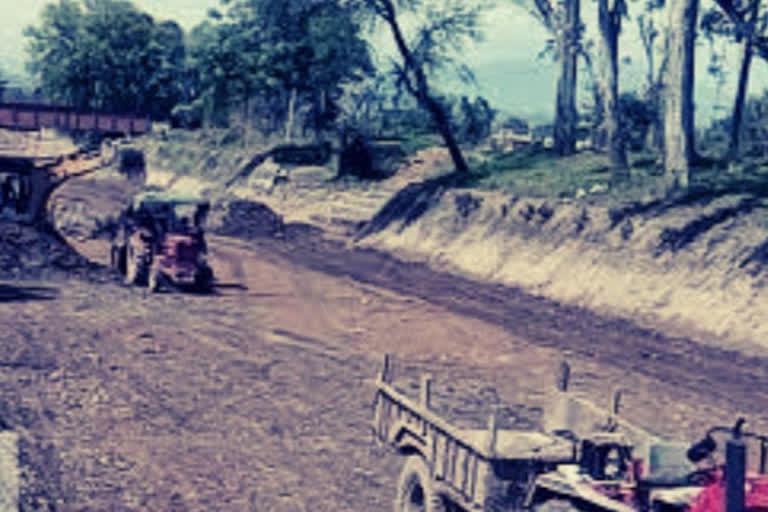Jammu: The extensive work of desilting and deep cleaning of the main canals across the Jammu region is going on in full swing as authorities decided to delay the release of water into them by a fortnight after the coronavirus outbreak put a halt on the upcoming Baisakhi festival celebrations.
The Jammu region has around 3,000-km vast network of canals under the major, medium and minor category alone, excluding the 'zamindari khuls' and field channels.
Ranbir Canal, New Pratap Canal, Ranjan Canal, Tawi Lift Canal, Paragwal Canal, Kathua Canal and Ravi Canals are the main canal systems of the region, which provide irrigation to lakhs of farmers in 842 villages, irrigating over one lakh hectare area.
These canals get filled with 'mulba' (silt) deposition, especially due to high silt content in the waters of Chenab, Tawi and Ravi rivers.
Besides, the Irrigation and flood control (IFC) department also faces the challenge of illegal disposal of waste in the canals as a large part of the Ranbir canal crosses the Jammu city.
"Over three lakh cubic metre of silt has been cleared from the major canals in the region so far. The Irrigation and Flood Control Department has taken up an extensive exercise for clearing mulba from these canals in February," a spokesperson of the Irrigation and Flood Control Department said.
He said after assessing the ground situation in consultation with farmers' representatives, water user groups, Panchayati Raj Institution members and the agriculture department, the department has decided to postpone the release of water in the canals to the last week of April.
"The department usually releases the waters in the Ranbir Canal and other irrigation canals of Jammu division on the eve of Baisakhi April 13 or 14. However, due to COVID-19 pandemic, no congregation is being organised this year and also due to no demand for water for irrigation, the release of water has been postponed," the spokesperson said.
He said the field officers have reported that there is no requirement of water by the farmers at this stage, as during previous months there was adequate rainfall and no harvesting of crops has taken place so far.
"The farmers may still take at least one to two weeks for harvesting the Rabi crop. Rather apprehension of damage to standing crops has been raised in case the water is released in the canals in April," the spokesperson said.
He said the canals also require clearance of shrub growths for ensuring smooth flow of water during irrigation season for which the IFC department undertakes annual desilting of canals during February-April every year.
During the current year, the department initiated many reforms to ensure deep cleaning of canals and ensure transparency in desilting work, the spokesperson said.
"Earlier the whole work was fragmented into very small works and around 800 tenders were being floated. Unlike previous years' practice of taking small works, this year the contracts were clubbed to ensure transparency. PRIs and Municipal Committee members were involved for regular monitoring of the desilting works," he said.
Besides the regular check and monitoring, the spokesman said, the municipal and panchayat authorities have also been asked to ensure diversion of drainage being disposed off in the canals and making proper garbage collection and disposal in the areas around the canals to prevent garbage dumping by people in canals
"More than 1,500 notices have also been issued to various individuals and agencies for the dumping of household waste and garbage in the canals," he said. (PTI)
Also Read: COVID-19 LIVE: Positive cases in India reaches 8356, death toll at 273




